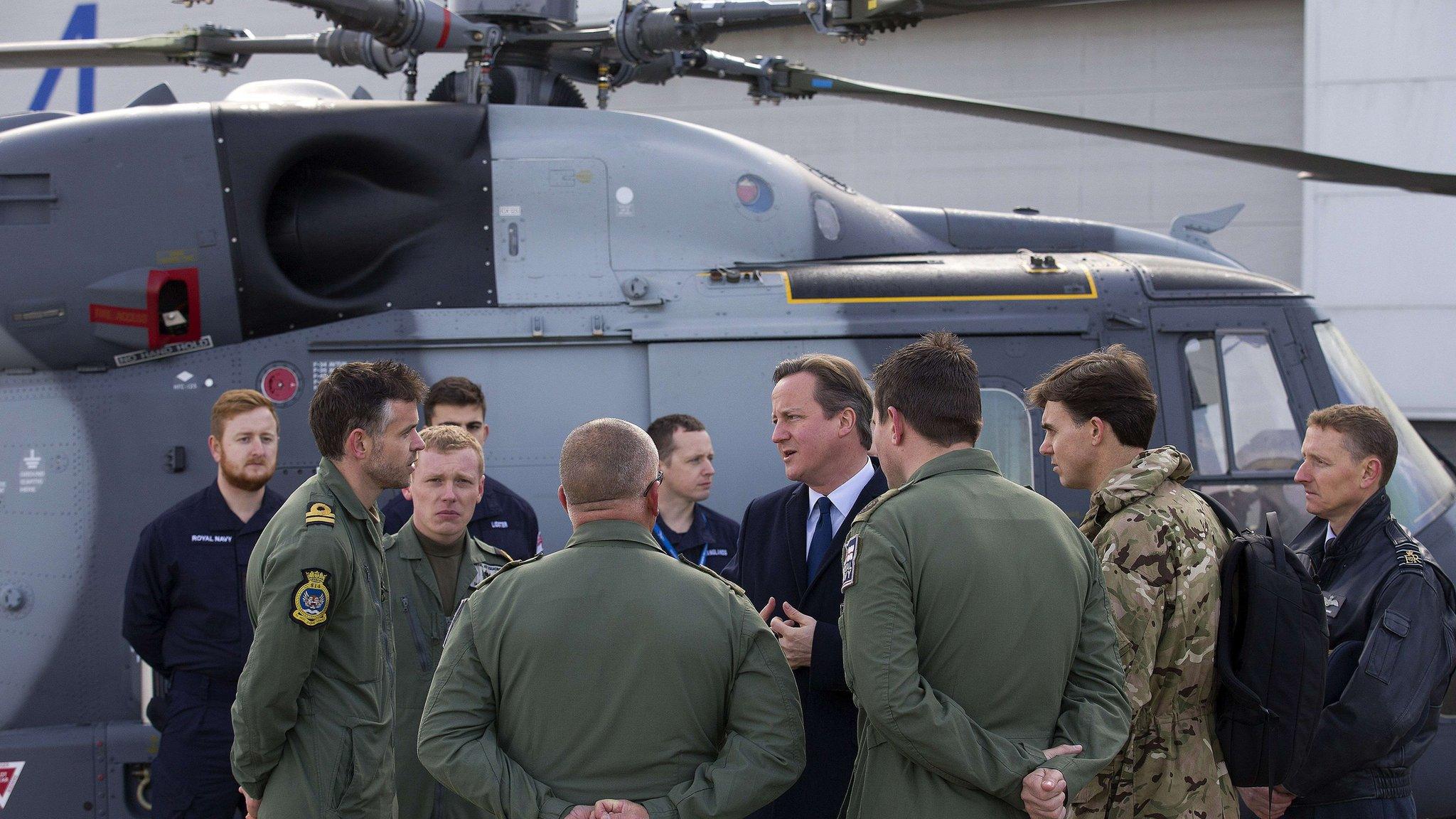Met Police to get 600 more armed police to boost terror response
- Published
BBC News looked at how the new Authorised Firearms Officers will be used within the Met
Six hundred extra armed officers are to be trained and patrols more than doubled to help counter the threat of a terrorist attack in London, the Metropolitan Police has announced.
It will bring the total number of armed officers in the capital to 2,800.
Met Commissioner Sir Bernard Hogan-Howe said: "It will be an expensive option, but is vital to keeping us safe."
It comes after Scotland Yard reassessed its ability to respond to armed attacks after last year's Paris terror attacks.
The plan to increase the number of armed officers - which is already under way - will more than double the Met's number of armed response vehicles.
Hogan-Howe: Met Police to train 600 extra armed officers
But one counter-terror expert said he was concerned that too much focus was being placed on London when the terror threat was UK wide.
The terror threat level in the UK remains at severe, meaning an attack is "highly likely".

Analysis
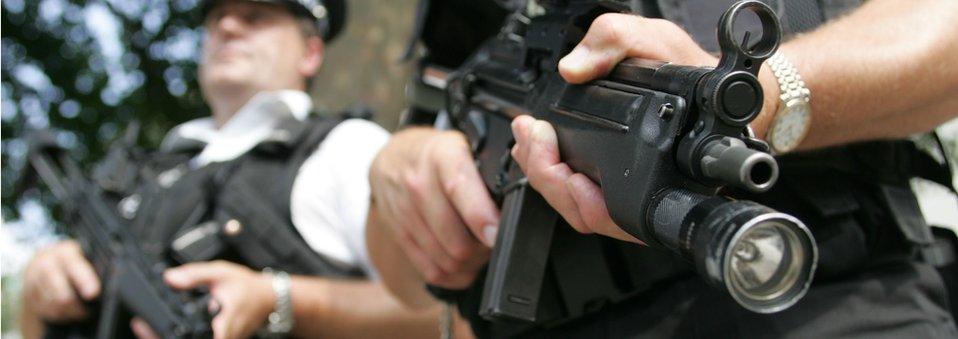
BBC home affairs correspondent Danny Shaw
The Met announcement is part of a wider plan across England and Wales to boost the capacity and capability of armed police officers. In the Met, there's unlikely to be any shortage of volunteers to perform the role - there are usually four applicants for every vacancy.
But firearms officers remain uneasy at the way in which those who discharge their weapons are dealt with - a concern highlighted by the suspension and arrest of officer W80, who shot dead Jermaine Baker in Wood Green in December.
Police expect their actions to be investigated and to be held to account. But if they believe they're being treated like a criminal who fires an illegal weapon, that'll deter firearms officers from coming forward.

Sir Bernard, who indicated in November that he would increase the Met's pool of firearms officers, said he had taken the decision because the capital was facing a threat that was "likely to be a spontaneous attack that requires a fast response".
"My firearms officers are our heroes - we expect them to run towards a terrorist attack and take action to confront and stop that threat," he said.
The increase in firearms officers would not change the "fundamental principle" that police in the UK are not routinely armed, with about 92% of the Met officers still unarmed, he added.

Of the 130,000 officers in England and Wales, about 6,000 are trained to use guns. The number of armed officers across England and Wales previously fell by 1,000 from 2010 to 2014.
The Home Office has made £34m available to improve police firearms capacity and help forces deal more quickly and effectively with a possible gun attack.
But Chris Phillips, former head of the National Counter Terrorism Security Office, said forces around the country needed the same level of support.
"We have seen individuals who are terrorists living in other parts of the country and they could just as easily decide to attack Bristol or Portsmouth as London," he said.
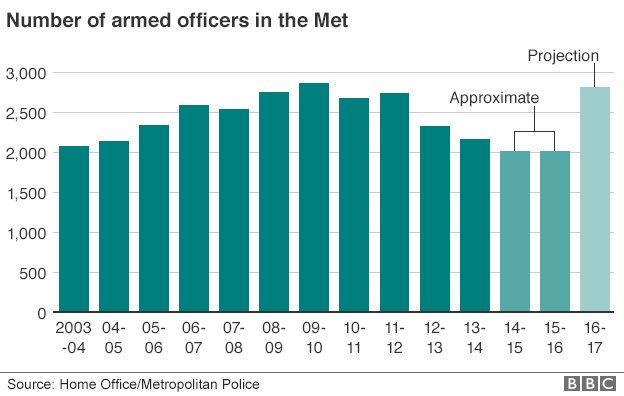
Mayor of London Boris Johnson welcomed the increase, saying it was "absolutely essential".
Shadow home secretary Andy Burnham said Labour gave the news a "cautious welcome" after "successfully forcing George Osborne to back down on his planned cuts to the police at the Spending Review" - but he questioned where the money was coming from.
"If it's taken out of neighbourhood policing so we see police officers come off the beat, or if it's money that isn't then available to other big cities around the country, then that wouldn't be right."

Do Londoners feel safer?
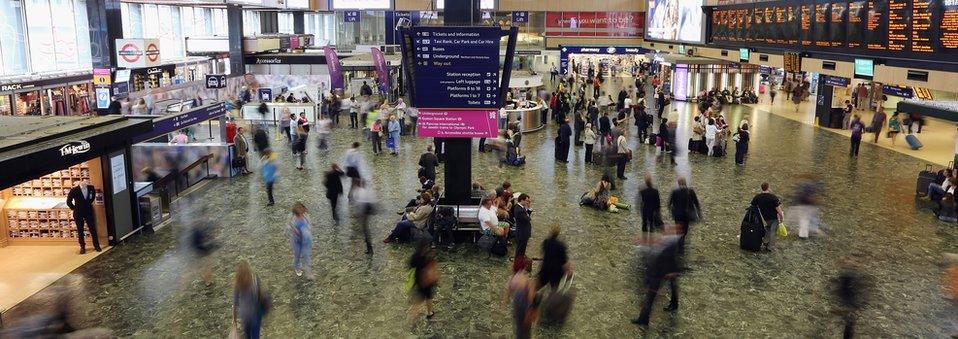
By Liz Jackson and Kayleen Devlin
Commuters outside London's Euston and King's Cross stations had mixed views about how effective extra armed officers would be.
"It actually makes you feel a bit nervous... it makes you think 'is there something going on?'," says 19-year old site agent Marley Brenner from Hertfordshire, who thinks increasing the number of undercover armed police would be "better".
Lawyer Tom Connolly, 51, from Derby, says he believes increasing their numbers is a "political move" that is "for show".
"It's not an effective deterrent in stopping anyone, and makes no difference to actual safety. They are never going to use [the guns]," he adds.
Janet Woods, 70, from Barnet, north London, says: "It does make me feel safer... I think it's a good thing."
"Don't you take on a risk when you walk into any metropolis nowadays?" asks 40-year-old fitness entrepreneur, Giles Dean.
"It's just part of London life," he says, but adds it could act "as a deterrent and make you feel a bit more safe".

UK counter-terrorism bosses recently revealed for the first time that police marksmen were being told to walk over casualties and go forward to confront gunmen should there be an attack.
'Split-second decision'
Ken Marsh, chairman of the Metropolitan Police Federation, said it was vital officers felt "fully supported by their colleagues and the government".
"They need to know that when they are making that split second decision [to shoot], that they have an honest-held belief in what they are doing, that they are going to be represented, they are going to be backed up and they are going to be taken care of," he said.
'We are not an armed force'
Prime Minister David Cameron ordered a review of the use of guns by police in England and Wales, following the Paris attacks, which left 130 people dead.
It follows concerns from senior police that firearms officers do not have the necessary legal or political backing to work with confidence.
- Published14 January 2016
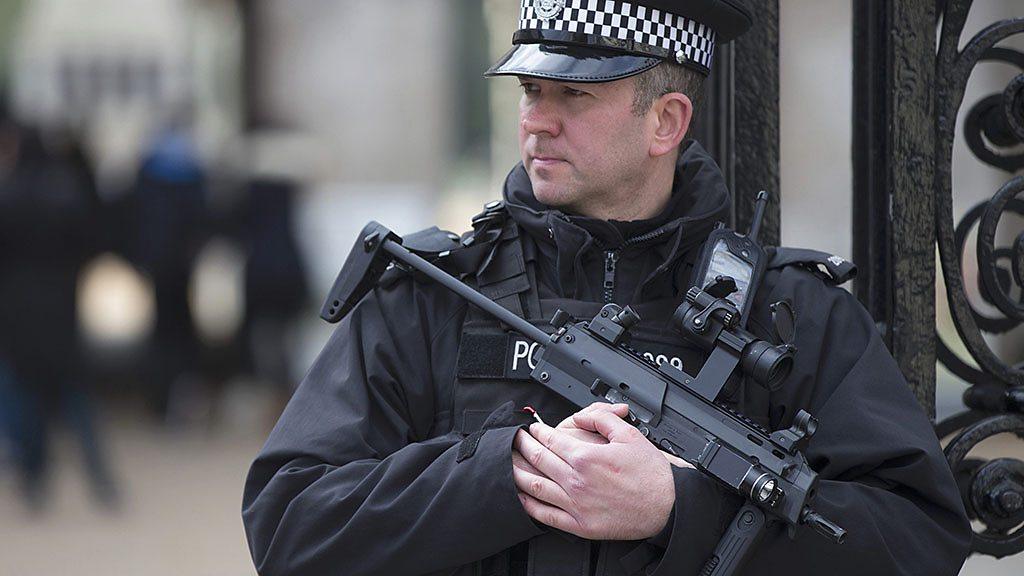
- Published1 January 2016
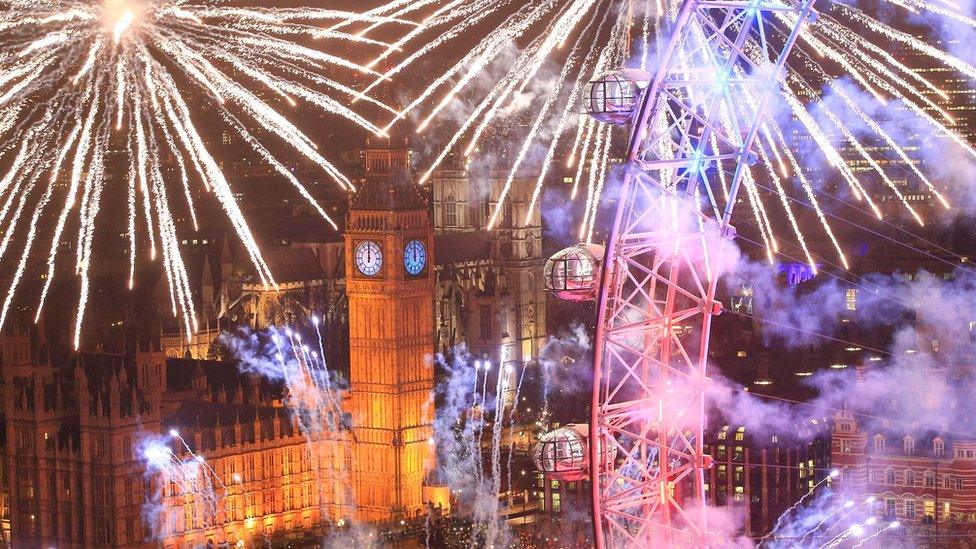
- Published20 December 2015
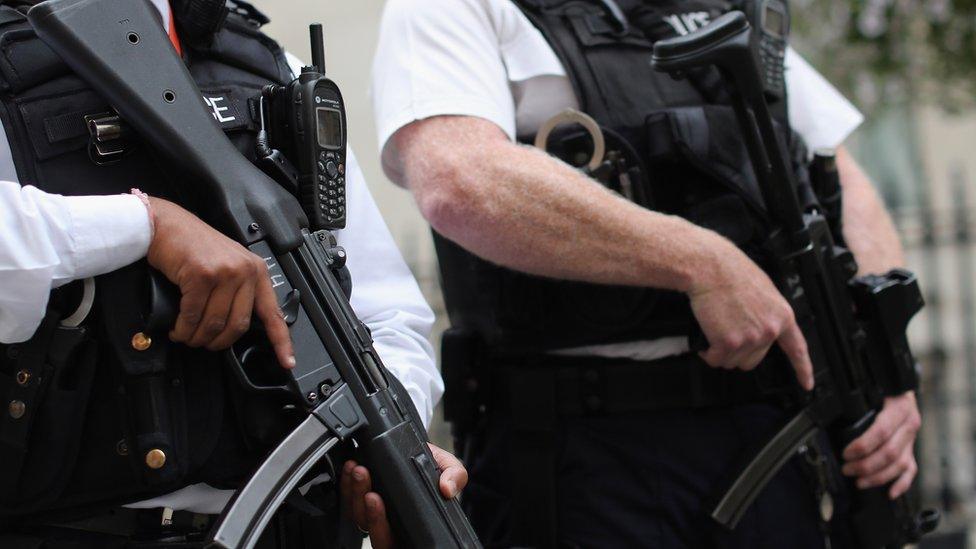
- Published9 December 2015
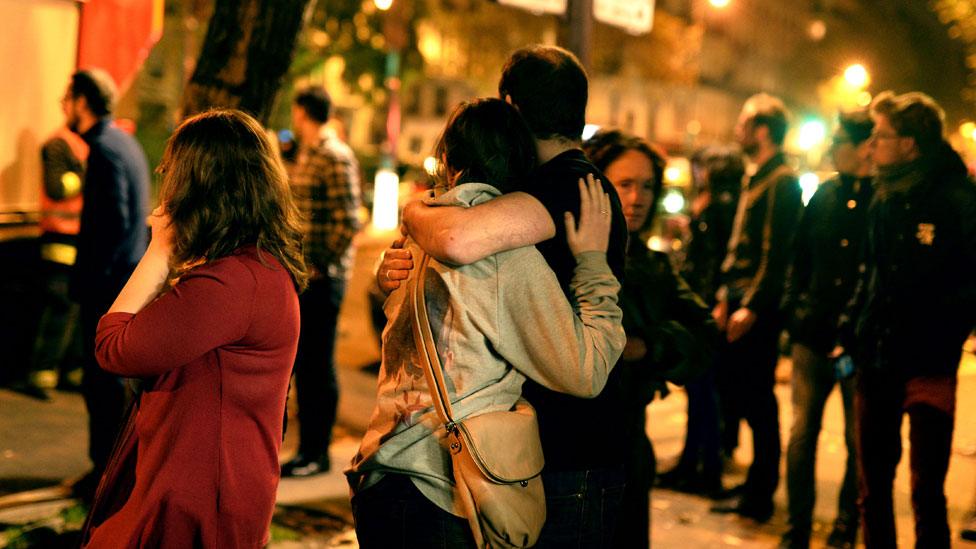
- Published2 December 2015
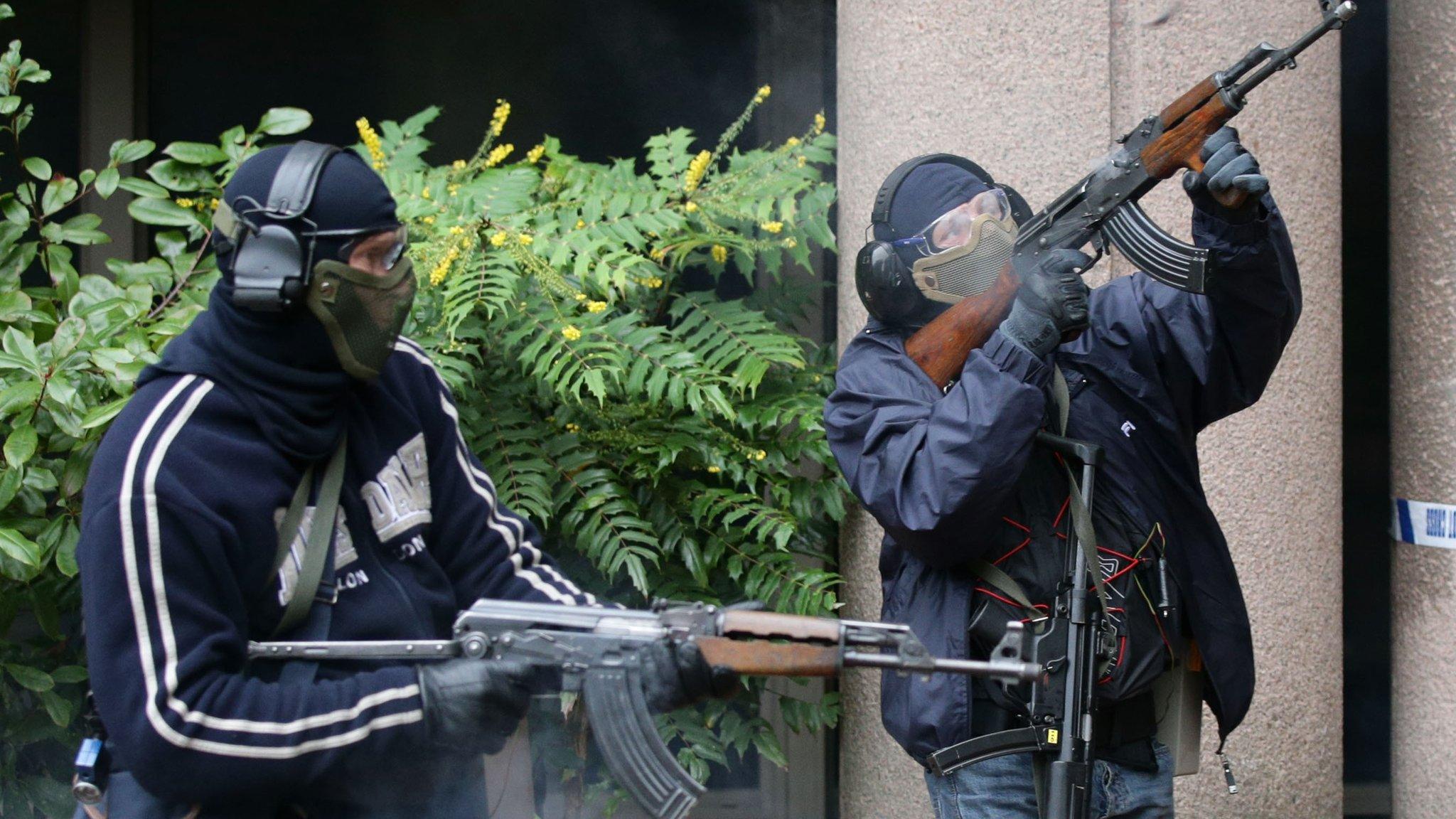
- Published23 November 2015
